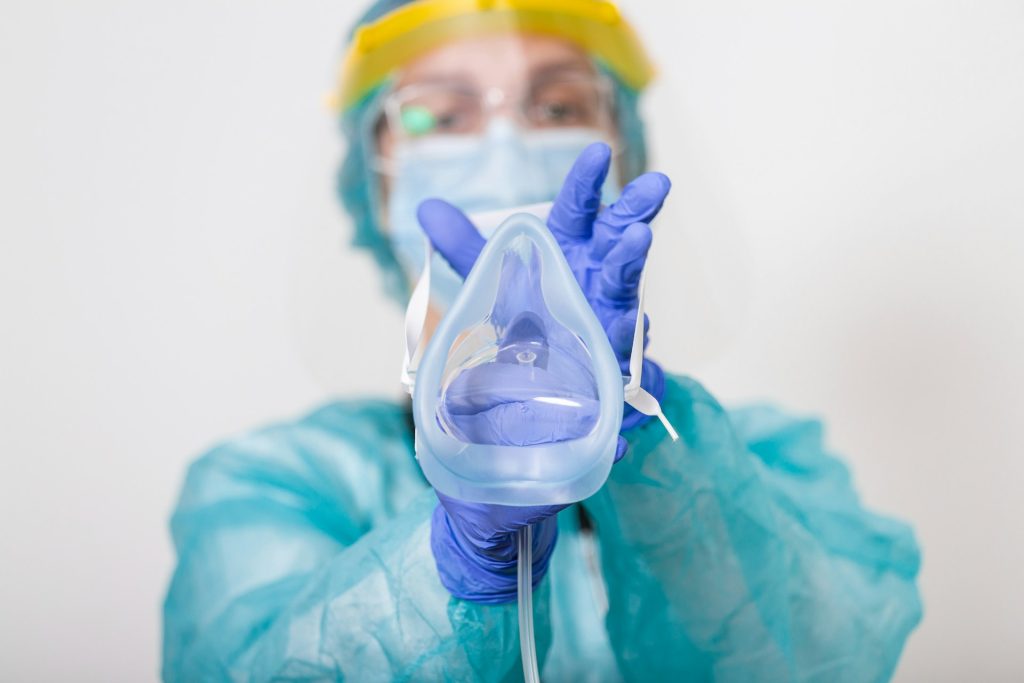Navigating Medicare guidelines for ventilator coverage can be complex, especially when it comes to ensuring you receive the necessary support for your health needs. Understanding the specific conditions under which Medicare covers home ventilators is critical for your medical care and financial well-being. This knowledge ensures that you can access durable medical equipment essential for respiratory support while adhering to Medicare billing requirements.
At The Modern Medicare Agency, we specialize in guiding you through the nuances of Medicare coverage. Our licensed agents are real people who take the time to understand your unique situation. They can help you identify Medicare packages tailored to your needs without hidden fees, simplifying the process of securing the equipment you need for better respiratory health.
By becoming well-versed in Medicare’s regulations on ventilators, you empower yourself to make informed decisions that impact your quality of life. Taking the next step with a knowledgeable partner can make the journey much smoother and more manageable.
Eligibility Criteria for Ventilator Coverage
To qualify for Medicare coverage of ventilators, specific criteria must be met that clearly establish the medical necessity of the equipment. This includes proving the presence of certain medical conditions and the appropriate documentation supporting the need for respiratory support.
Medically Necessary Respiratory Assist Devices
Medicare will cover respiratory assist devices (RADs) only when they are deemed medically necessary. You must provide documentation that demonstrates how the device will treat your condition. Examples of medically necessary devices include CPAP, BiPAP, and ventilators.
Your healthcare provider must affirm that the device’s use is essential to treat conditions such as chronic respiratory failure or documented sleep hypoventilation. Careful documentation is crucial, as this will be reviewed by Medicare. Make sure to include comprehensive medical records that outline your symptoms and the necessity for continuous respiratory support.
Diagnoses and Conditions Covered
Several diagnoses make individuals eligible for ventilator coverage under Medicare. Chronic obstructive pulmonary disease (COPD) is a primary condition covered, requiring evidence of severe respiratory impairment.
Additionally, those with neuromuscular diseases, such as amyotrophic lateral sclerosis (ALS), may qualify if they experience respiratory failure. Hypoventilation syndrome and thoracic restrictive diseases also fall under this category. Documentation must clearly show that these conditions hinder normal breathing, and it should be outlined in your medical records.
By consulting with The Modern Medicare Agency, you can ensure you receive the right assistance tailored to your specific needs. Our licensed agents offer personalized guidance without extra fees, helping you find the perfect Medicare plan that aligns with your requirements.
Documentation Requirements
Maintaining proper documentation is crucial for compliance with Medicare guidelines regarding ventilator use. Specifically, two major areas of focus are the necessity of a clear prescription and thorough medical records, followed by proof of the device’s clinical efficacy.
Prescriptions and Medical Records
You must obtain a standard written order from a physician or an appropriate non-physician practitioner (NPP) for all ventilator services. This order needs to include detailed information about the medical necessity of the device.
Your medical records should comprehensively document the patient’s condition, including relevant parameters such as arterial blood gas values and oxygen saturation levels. These records serve as critical evidence for Medicare coverage, ensuring that the claim process runs smoothly and efficiently. Remember, thorough documentation minimizes the risk of errors and denials during the reimbursement process.
Proof of Clinical Efficacy
To establish the medical necessity of a ventilator, you must document proof of clinical efficacy. This includes showing significant respiratory distress or inadequate response to alternate therapies.
Key elements such as a history of worsening hypercapnia, acidosis, or persistent oxygen saturation below 90% for a specified duration are critical. A well-documented history not only supports your claim but also adheres to the local coverage determination guidelines set by Medicare.
For expert guidance navigating these documentation requirements, consider reaching out to The Modern Medicare Agency. Our licensed agents are real people ready to help you identify Medicare packages tailored to your needs—without any hidden fees.
Coding and Billing for Ventilators
Understanding the coding and billing processes for ventilators is essential for accurate reimbursement under Medicare. Specific guidelines govern the use of various codes, which are critical for ensuring compliance and avoiding payment delays.
HCPCS and CPT Codes
When billing for ventilators, it’s important to use the correct HCPCS codes. The following codes are relevant:
- E0465 – Home ventilator, any type, used with invasive interface.
- E0466 – Home ventilator, any type, used with non-invasive interface.
- E0467 – Home ventilator, multi-function device that includes oxygen concentration and drug nebulization.
- E0468 – Portable ventilator.
CPT codes may also apply for respiratory services. Utilize these codes accurately to secure reimbursement and adhere to guidelines, which can be found through the DME MAC publications.
Correct Coding Practices
Correct coding practices are crucial for successfully navigating Medicare claims. Always ensure that associated procedure and diagnosis codes align with the service provided. For example, documentation must support the need for the ventilator type billed.
Common errors include using incorrect codes, lack of sufficient documentation, or failing to follow local coverage determinations. To avoid pitfalls, refer to updated guidelines from The Modern Medicare Agency. Our licensed agents can assist you in finding the right Medicare package tailored to your needs without any additional fees that may harm your budget. Proper coding not only facilitates smooth billing but also enhances compliance with Medicare policies.
Respiratory Devices and Medicare Coverage
Understanding the specifics of Medicare coverage for respiratory devices is crucial for those needing assistance with breathing conditions. In this section, we will explore Continuous Positive Airway Pressure (CPAP) devices and Bi-Level PAP and multi-function devices, outlining coverage criteria and important considerations.
Continuous Positive Airway Pressure Devices
CPAP devices are essential for patients with obstructive sleep apnea (OSA). These devices work by providing a steady stream of air to keep the airways open during sleep.
To qualify for Medicare coverage, the following must be met:
- A doctor must diagnose OSA through sleep testing.
- You must demonstrate a need based on specific criteria, such as excessive daytime sleepiness.
- The device must be used for a minimum of four hours per night on at least 70% of nights.
Coverage includes both the CPAP machine and associated supplies, such as masks and tubing. Selecting a device that meets your needs is critical. The Modern Medicare Agency can help you navigate choices without extra costs and ensure you get the right package tailored to your situation.
Bi-Level PAP and Multi-function Devices
Bi-Level Positive Airway Pressure (Bi-Level PAP) devices provide two pressure settings: one for inhalation and another for exhalation. These devices are advantageous for patients who have difficulty tolerating CPAP therapy.
Medicare coverage for Bi-Level PAP includes:
- A doctor’s prescription based on a medical evaluation.
- Proof that the device is essential for treating conditions like COPD or neuromuscular disorders.
Additionally, multi-function devices combine functions like oxygen concentration, making them versatile for various needs. Coverage encompasses essential equipment and accessories. For guidance on selecting the right device and understanding your coverage options, the expertise of The Modern Medicare Agency is invaluable, ensuring you receive comprehensive support without unnecessary expenses.
Additional Services and Equipment
Ventilator therapy often requires additional services and equipment to ensure optimal patient care. Understanding these supplementary components can enhance treatment outcomes and provide comprehensive support.
Ancillary Respiratory Medical Supplies
Ancillary supplies include a range of items vital for effective ventilator use. Essential supplies may encompass drug nebulization devices for delivering medications directly to the lungs, which is critical for patients with specific respiratory conditions.
In addition, various forms of durable medical equipment (DME) such as aspirators are necessary for clearing airways and managing secretions. Devices like mechanical in-exsufflation devices and high-frequency chest wall oscillation devices may also be part of the regimen, aiding in lung function and secretion clearance.
It’s important to have a reliable supplier to access these items consistently. Partnering with The Modern Medicare Agency ensures that you find compatible solutions efficiently, maximizing comfort and care.
Maintenance and Servicing
Frequent and substantial servicing of ventilators is crucial to maintain performance and patient safety. Regular maintenance helps identify potential issues before they escalate, thus avoiding disruptions in therapy.
Routine checks should include evaluating the ventilator’s functionality, ensuring proper calibration, and confirming that all components are clean and well-maintained. Moreover, timely servicing can prevent the need for premature replacements, thus saving costs.
You should ensure your provider offers comprehensive maintenance options. The Modern Medicare Agency connects you with resources for ongoing support, ensuring peace of mind throughout your ventilation therapy experience.






